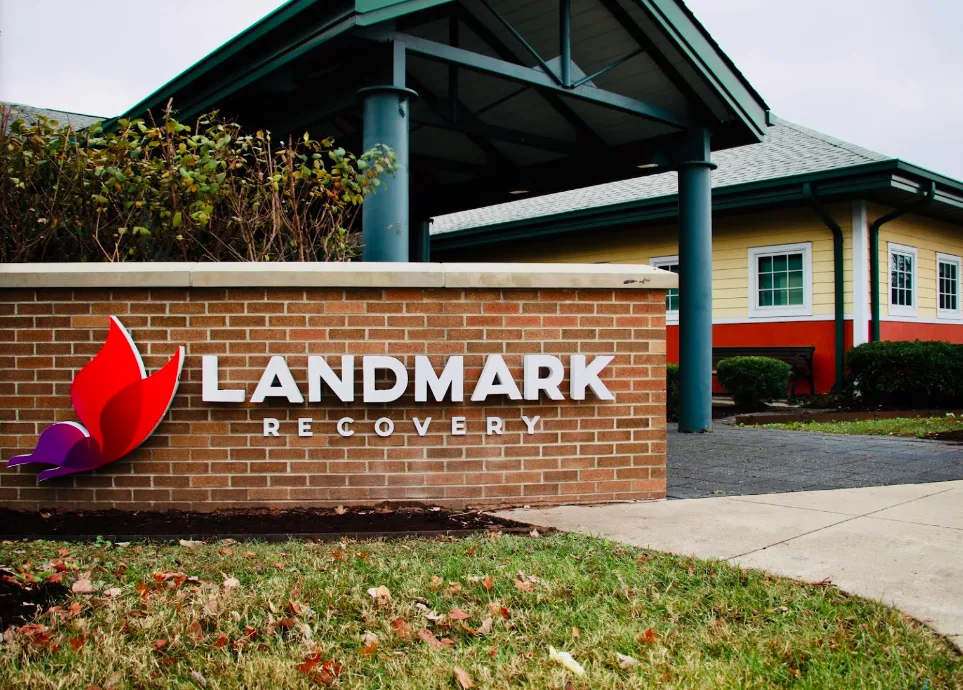Rehabs That Allow Smoking: Tobacco and Vaping Policies in Rehab







- Laws often require rehabs to ban indoor smoking.
- Policies vary, but many rehabs allow smoking outdoors.
- Rehab is a great chance to quit smoking, and doing so can help your recovery.
Are you getting ready to enter treatment, but not sure if you can pack cigarettes? Or are you anxious about the possibility you may not be able to smoke for the next few weeks? Many rehabs allow patients to smoke outside at their facility. But rehab also presents a great opportunity for you to quit smoking with the full support of a clinical team. And rehabs that have smoking cessation programs provide specialized treatment for people wanting to quit for good.
Can You Smoke Cigarettes in Rehab?
Almost every single rehab in the U.S. has an indoor ban on smoking,1 but most rehabs allow smoking outdoors. That’s because most state laws require rehabs to ban indoor smoking. However, a few states also ban smoking anywhere on a rehab’s campus:2
Other countries have different smoking policies. Many countries ban indoor smoking,3 especially in healthcare facilities. However, if you’re interested in traveling abroad for addiction treatment, you can contact your rehab to ask about their tobacco policies.
Most of these laws are specifically about cigarettes and cigars, because of how new e-cigarettes are. However, some states already have bans on indoor e-cigarette smoking,4 which includes treatment centers. And many rehabs’ smoking policies extend to e-cigarettes.
Your rehab’s treatment philosophy can also influence their views on smoking. Some providers believe that restricting patients’ use of tobacco adds stress to treatment.5 In fact, smoking used to be encouraged during addiction treatment6 because providers saw it as a less harmful addiction.
However, studies actually show that smoking cessation promotes abstinence7 from other substances and can even reduce risk of relapse. And the research shows that treatment is most effective when you address both tobacco and other addictions8 at the same time.
Whether or not you can smoke in rehab depends on your specific treatment center’s policies. You can always call ahead to ask if they’re not in a state that mandates tobacco-free grounds.
Why Do Rehabs Allow Smoking?
For some people, the prospect of treatment without the ability to smoke may prevent them from going to rehab. If that’s how you feel, then a rehab that allows you to smoke could ease your anxiety and transition into treatment.
While almost all rehabs prohibit smoking indoors, about 65% of U.S. rehabs allow smoking9 in designated outdoor areas. For example, Landmark Recovery in Kentucky allows patients to smoke outside. But they also encourage patients to quit smoking and provide therapeutic support for those who wish to do so.

Explore Residential Treatment Centers
Smoking Bans in Rehab Facilities
If you don’t smoke, or if you’re looking to quit smoking, then a smoke-free rehab is a good choice to avoid both secondhand smoke and social pressure to smoke. About 35% of U.S. rehabs have tobacco-free grounds.10
One example is Paradise Valley Healing Center in British Columbia, Canada. Their Founder & Director, Nirmala Raniga, explains why tobacco is important to quit:
“Smoking is more than an addiction to nicotine. It is a physical and emotional release from stress and tension. It meets an inherent need that smokers might not have been able to address any other way.”
She also acknowledges the link between tobacco and other addictions to explain why they ban smoking:
“Very often, those who stop drinking will turn for example, to smoking or even caffeine as a substitute for alcohol. Instead of substituting one substance for another as a way to address the pain arising, the recovering person must get to the root of the traumatic issues that led to the addiction in the first place. Only then, will this cycle be broken.”
If you decide to take the opportunity to stop smoking during rehab, many centers offer smoking cessation programs to help you quit.

Smoking Cessation Programs in Addiction Rehab
Studies show that up to 87% of patients in addiction treatment smoke tobacco.11 And patients in treatment for substance abuse are more likely to die from their tobacco addiction12 than from their primary addiction, which is why many states have started to mandate smoking cessation programs.
About 25% of states require rehabs to provide smoking cessation programs.13 And studies show that these mandates have been successful. For example, when New Jersey began to require smoking cessation programs in all licensed rehabs, tobacco abstinence increased significantly,14 while dropout rates stayed constant. These programs help many quit smoking and don’t lead people to leave treatment early because they can’t smoke.
Benefits to Quitting Smoking in Rehab
Quitting smoking builds your resilience15 and confidence in your ability to manage your addiction, which is helpful for preventing relapse.
Plus, quitting smoking improves your mental health16 almost immediately. After withdrawal symptoms, most people experience a more positive mood and reduced depression, anxiety, and stress. This uptick in your mental state may make treatment both easier and more successful.
Quitting tobacco is great for your physical health.17 Most people who quit find it easier to exercise and tend to develop more nourishing eating habits. Rehab is an opportunity to start a new life. Quitting smoking allows you to kick-start your new lifestyle in an even stronger way.
Smoking Cessation Treatment Methods
Smoking cessation programs in rehabs can be incorporated into the rest of your treatment program. And just like other addictions, there are several different therapy options for quitting smoking:18
- One-on-one or group counseling, usually using cognitive behavioral therapy or motivational interviewing techniques
- Nicotine replacement therapy (NRT), including prescription and over-the-counter gums, patches, and other forms of nicotine
- Non-NRT medications like varenicline or bupropion
- Transcranial magnetic stimulation, which uses magnetic waves to stimulate areas of the brain to reduce cravings
Studies show that the most effective smoking cessation programs19 are a combination of counseling and medications. Your rehab will have its own program to help you quit smoking while you work on other addiction or mental health issues.
Quit Smoking in Rehab for Long-Term Success
If you’re worried about not being able to smoke in rehab and it’s holding you back from seeking treatment, plenty of rehabs allow smoking outdoors. However, research shows that this is actually an ideal time for you to quit smoking. You’ll be surrounded by professionals who can help you find new coping strategies in a healing and supportive setting.
Explore rehabs with smoking cessation programs to learn more about pricing, insurance, treatment options, and more.
-
Muilenburg, Jessica L., et al. “Prevalence of and Factors Related to Tobacco Ban Implementation in Substance Use Disorder Treatment Programs.” Administration and Policy in Mental Health, vol. 43, no. 2, Mar. 2016, pp. 241–49. PubMed Central, https://doi.org/10.1007/s10488-015-0636-y.
-
“U.S. State Laws Requiring Tobacco-Free Grounds for Mental Health and Substance Use Facilities.” Public Health Law Center. https://www.publichealthlawcenter.org/sites/default/files/resources/Tobacco-Free-State-Policies-Mental-Health-Substance-Use-Facilities.pdf
-
“WHO REPORT ON THE GLOBAL TOBACCO EPIDEMIC, 2021: Addressing new and emerging products.” World Health Organization. https://digitalcommons.fiu.edu/cgi/viewcontent.cgi?article=1963&context=srhreports
-
National Center for Chronic Disease Prevention and Health Promotion (US) Office on Smoking and Health. E-Cigarette Use Among Youth and Young Adults: A Report of the Surgeon General [Internet]. Atlanta (GA): Centers for Disease Control and Prevention (US); 2016. Chapter 5, E-Cigarette Policy and Practice Implications. Available from: https://www.ncbi.nlm.nih.gov/books/NBK538682/
-
Muilenburg JL, Laschober TC, Eby LT, Moore ND. Prevalence of and Factors Related to Tobacco Ban Implementation in Substance Use Disorder Treatment Programs. Adm Policy Ment Health. 2016 Mar;43(2):241-9. doi: 10.1007/s10488-015-0636-y. PMID: 25677250; PMCID: PMC4536174.
-
McKelvey K, Thrul J, Ramo D. Impact of quitting smoking and smoking cessation treatment on substance use outcomes: An updated and narrative review. Addict Behav. 2017 Feb;65:161-170. doi: 10.1016/j.addbeh.2016.10.012. Epub 2016 Oct 27. PMID: 27816663; PMCID: PMC5140700.
-
Muilenburg JL, Laschober TC, Eby LT, Moore ND. Prevalence of and Factors Related to Tobacco Ban Implementation in Substance Use Disorder Treatment Programs. Adm Policy Ment Health. 2016 Mar;43(2):241-9. doi: 10.1007/s10488-015-0636-y. PMID: 25677250; PMCID: PMC4536174.
-
NIDA. 2018, May 31. Cigarette Smoking Increases the Likelihood of Drug Use Relapse. Retrieved from https://nida.nih.gov/news-events/nida-notes/2018/05/cigarette-smoking-increases-likelihood-drug-use-relapse on 2023, March 23
-
Muilenburg JL, Laschober TC, Eby LT, Moore ND. Prevalence of and Factors Related to Tobacco Ban Implementation in Substance Use Disorder Treatment Programs. Adm Policy Ment Health. 2016 Mar;43(2):241-9. doi: 10.1007/s10488-015-0636-y. PMID: 25677250; PMCID: PMC4536174.
-
Muilenburg JL, Laschober TC, Eby LT, Moore ND. Prevalence of and Factors Related to Tobacco Ban Implementation in Substance Use Disorder Treatment Programs. Adm Policy Ment Health. 2016 Mar;43(2):241-9. doi: 10.1007/s10488-015-0636-y. PMID: 25677250; PMCID: PMC4536174.
-
Muilenburg JL, Laschober TC, Eby LT, Moore ND. Prevalence of and Factors Related to Tobacco Ban Implementation in Substance Use Disorder Treatment Programs. Adm Policy Ment Health. 2016 Mar;43(2):241-9. doi: 10.1007/s10488-015-0636-y. PMID: 25677250; PMCID: PMC4536174.
-
Krauth D, Apollonio DE. Overview of state policies requiring smoking cessation therapy in psychiatric hospitals and drug abuse treatment centers. Tob Induc Dis. 2015 Oct 22;13:33. doi: 10.1186/s12971-015-0059-2. PMID: 26500471; PMCID: PMC4618524.
-
Krauth D, Apollonio DE. Overview of state policies requiring smoking cessation therapy in psychiatric hospitals and drug abuse treatment centers. Tob Induc Dis. 2015 Oct 22;13:33. doi: 10.1186/s12971-015-0059-2. PMID: 26500471; PMCID: PMC4618524.
-
Krauth D, Apollonio DE. Overview of state policies requiring smoking cessation therapy in psychiatric hospitals and drug abuse treatment centers. Tob Induc Dis. 2015 Oct 22;13:33. doi: 10.1186/s12971-015-0059-2. PMID: 26500471; PMCID: PMC4618524.
-
Substance Abuse and Mental Health Services Administration. Implementing Tobacco Cessation Programs in Substance Use Disorder Treatment Settings: A Quick Guide for Program Directors and Clinicians. HHS Publication No. SMA18-5069QG. Rockville, MD: Substance Abuse and Mental Health Services Administration, 2018.
-
Substance Abuse and Mental Health Services Administration. Implementing Tobacco Cessation Programs in Substance Use Disorder Treatment Settings: A Quick Guide for Program Directors and Clinicians. HHS Publication No. SMA18-5069QG. Rockville, MD: Substance Abuse and Mental Health Services Administration, 2018.
-
CDCTobaccoFree. “Benefits of Quitting.” Centers for Disease Control and Prevention, 3 June 2021
-
Substance Abuse and Mental Health Services Administration. Implementing Tobacco Cessation Programs in Substance Use Disorder Treatment Settings: A Quick Guide for Program Directors and Clinicians. HHS Publication No. SMA18-5069QG. Rockville, MD: Substance Abuse and Mental Health Services Administration, 2018.
-
Substance Abuse and Mental Health Services Administration. Implementing Tobacco Cessation Programs in Substance Use Disorder Treatment Settings: A Quick Guide for Program Directors and Clinicians. HHS Publication No. SMA18-5069QG. Rockville, MD: Substance Abuse and Mental Health Services Administration, 2018.
Our Promise
How Is Recovery.com Different?
We believe everyone deserves access to accurate, unbiased information about mental health and recovery. That’s why we have a comprehensive set of treatment providers and don't charge for inclusion. Any center that meets our criteria can list for free. We do not and have never accepted fees for referring someone to a particular center. Providers who advertise with us must be verified by our Research Team and we clearly mark their status as advertisers.
Our goal is to help you choose the best path for your recovery. That begins with information you can trust.






